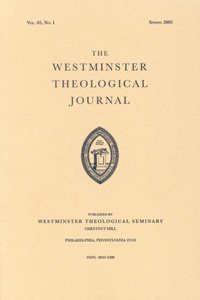Bruce Waltke on "Inspiration and Incarnation"

June 10, 2009

The Spring 2009 issue of The Westminster Theological Journal includes some excellent articles on the issues of biblical inerrancy and interpretation. Of particular interest is the interaction between Bruce Waltke and Pete Enns. Dr. Waltke critiques Dr. Enns' book Inspiration and Incarnation. Enns then responds to Waltke to which Waltke offers a response to the response. Follow that?
Waltke writes:
Professor Enns invites evangelicals to interact with his provocative ideas for sharpening theological discussion about the nature of Scripture. Upon my first reading I was struck with his commendable, unflinching honesty. Not allowing dogma to overwhelm data, he attempts pastorally to assist students who think the Reformed doctrine of Scripture is not viable. Enns holds with conviction the concept that both the Word of God as Scripture, and the Word of God as Jesus Christ, become incarnate: fully divine and fully human, as Warfield propounded in his concursive theory of inspiration.
Upon my second reading and more reflection, however, I questioned whether Enns’s answer helped doubters to keep the faith. This forced me to reflect more deeply upon the theologically disturbing cache of texts that Enns so helpfully collected, categorized, and then sought to resolve by his ‘‘incarnation’’ model of thinking about Scripture. A model, however, that represents the Mosaic Law as flexible, the inspired religion of Israel in its early stage as somewhat doctrinally misleading, the Chronicler’s harmonization as incredible,NTteachings as based on questionable historical data, and an apologetic for Jesus of Nazareth’s Messianic claim as arbitrary,would not be helpful to me inmy theological education. Nevertheless, I owe Enns a tremendous amount of gratitude for challenging me to think honestly and soberly about these texts that are troubling to all who hold Reformed convictions about the inspiration of holy Scripture.
Waltke then goes on to critique Enns' handling of texts of Scripture he considers problematic. For example, in Inspiration and Incarnation Enns writes:
JobWaltke's response is as follows:
If disobedience leads to God’s curse (Deut. 28:15-68), then it is not too hard to reason back the other way: if you are cursed, you must have done something to deserve it. This is the assumption [of Job’s friends]. . . . Anyone well versed in Old Testament teaching would likely have drawn the same conclusion [as Job’s three friends]. (p. 81)
But this statement is not accurate or helpful to me. Is it true that anyone well versed in theOT would draw the conclusion that it teaches that a person who is cursed—I take it that Enns uses the word loosely, for the friends never use it of Job—must have done wrong? A person well-versed in Scripture—so it seems to me—certainly knows that righteous Abel ismurdered by Cain and, while Abel’s blood cries out for justice, themurderer lives out a normal life-span. After Abraham by faith arrived in the Promised Land, God inflicted a famine on the land, a drought so severe that Abraham felt compelled to leave the Promised Land. Innocent Joseph was sold into slavery where he suffered hard iron. Job points to numerous situations where the righteous suffer and the wicked prosper within the divine scheme of things, and that surely his friends also knew. (A person less well-versed in the OT literature may not be aware that in the book of Proverbs the father’s first lecture represents the wicked as dispatching the innocent to a premature death while the wicked fill their house with plunder taken from him [Prov 1: 11-14].)Moreover, one does not have to be well-versed in theOT literature to know from the NT that the righteous Son of God was nailed to the cross and that his apostleswere martyrs for their faith in Jesus Christ. In sum, the three friends illogically drew a conclusion that did not square with the teachings of Proverbs, which is also well aware that the wicked are full while the righteous hunger (cf. Prov 16:8)—but that is not the whole story.
I found this format to be very helpful. Again and again Dr. Waltke demonstrates why he is considered one of the foremost Old Testament exegetes in the world. It also demonstrates why Dr. Enns' book was met with a great deal of dismay among many in the scholarly community.
Read the entire article HERE.




